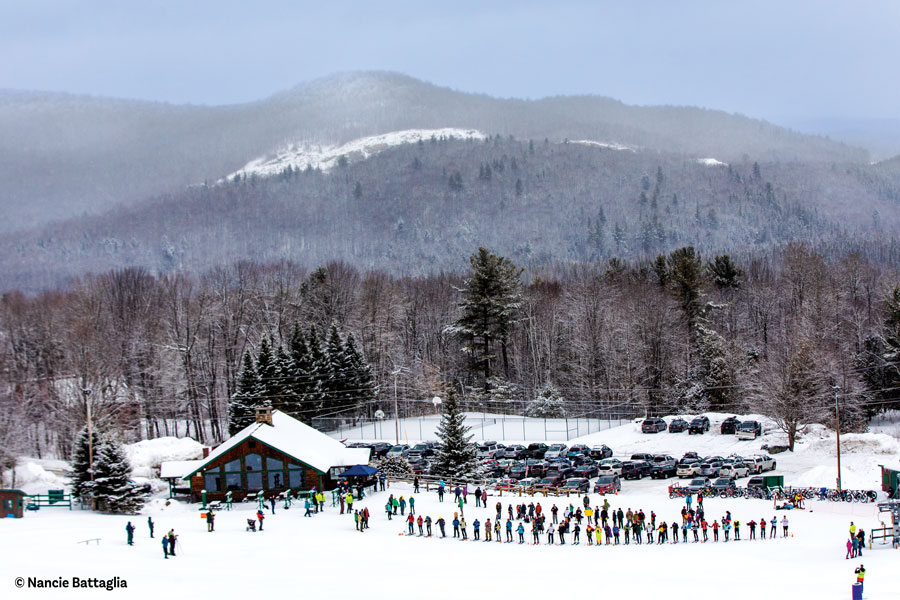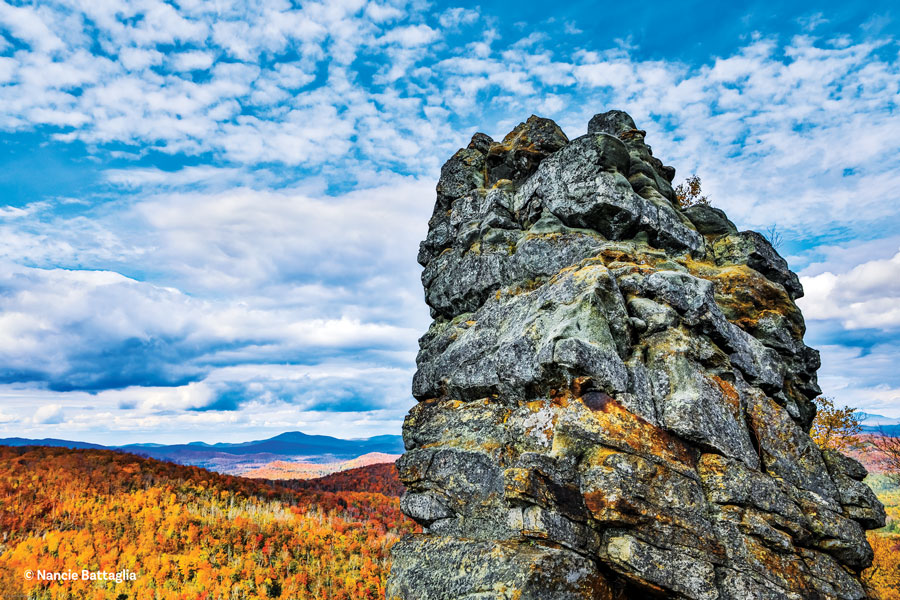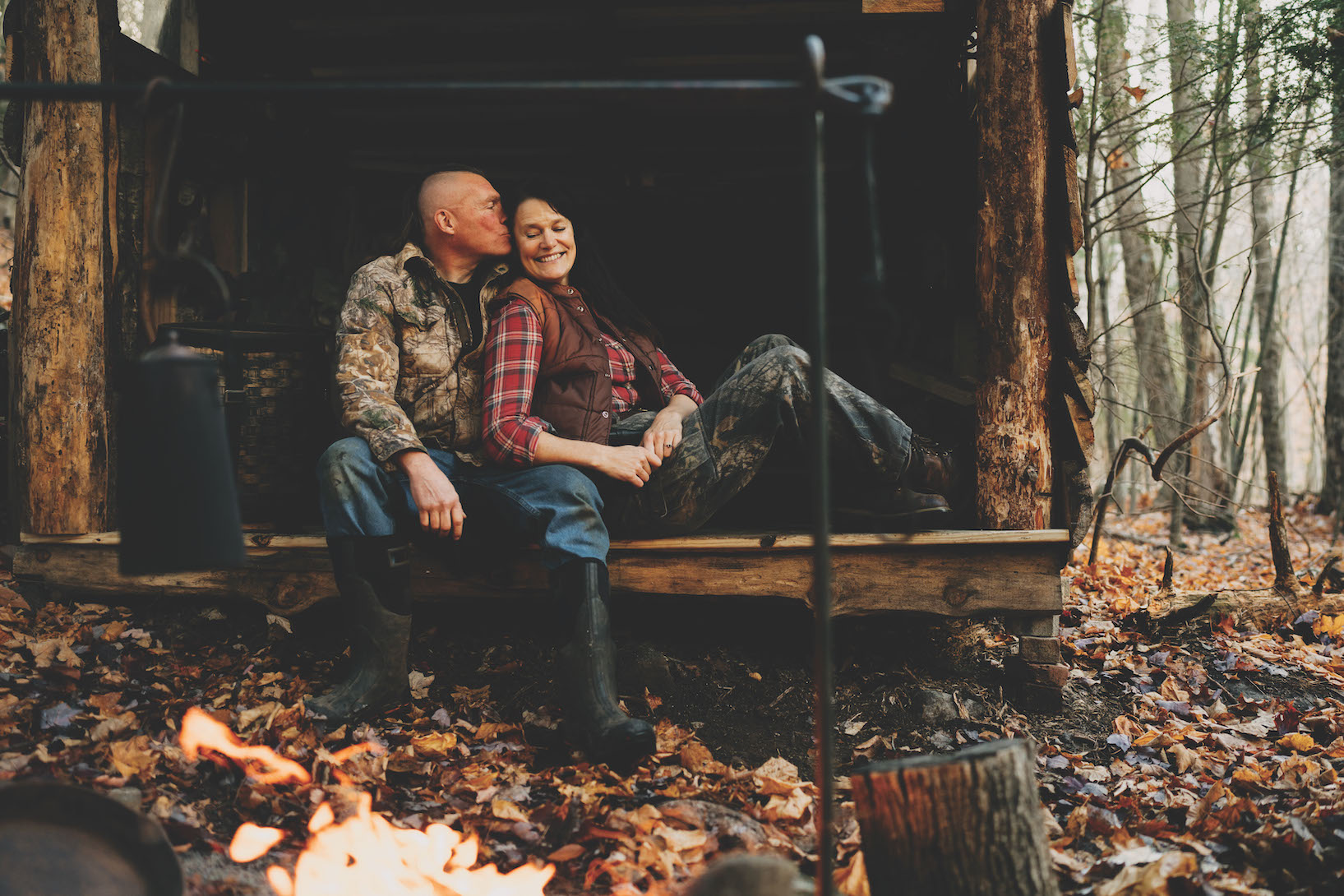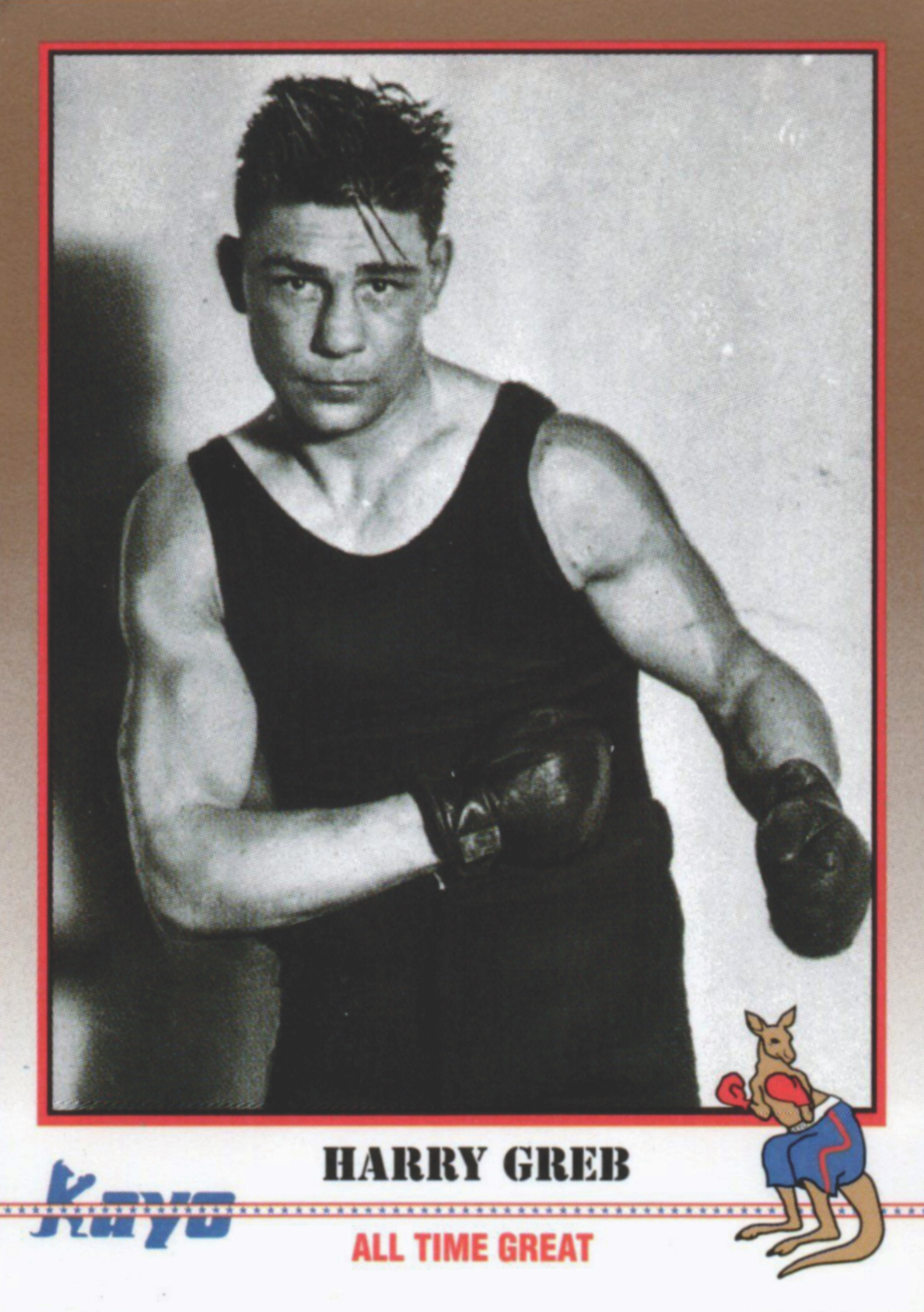TODAY’S LEGAL DEER hunter (there are still some who don’t fit the description) goes into Adirondack deer country with the realization that if the harvest does not come to state conservationists’ expectations, many deer will starve during the winter. In 1969, the winter loss was heavy in north western Franklin and St, Lawrence Counties… Winter survival was more favorable in the mountainous areas where Conservation Department harvesting expectations were approached and frequently achieved.
Today the taking of a deer legally is not only a hunting accomplishment it is also a necessary step in the maintenance of a balanced ecological environment.
Things were different in the 1880s. With illustrations and excerpts from a Harper’s Monthly magazine article of that time, we present highlights of an August camping and deer hunting trip that discovered waterway pollution ninety years ago, that introduces the colorful Adirondack guide and that dramatizes the hounding of deer, which, fortunately, was banned soon after this article appeared.
Four friends met at Elizabethtown…
The morning of the next day was bright and glad. Our wagon stood waiting before the porch of the Windsor; the miscellaneous impedimenta were stowed away under the seats; the mouse-colored horses were leaning patiently against the pole, after the manner of their tribe; and nothing remained to be done save to say good–by, and start away for our distant camping ground. A merry shout, a blowing of horns, and ringing of bells, and waving of handkerchiefs, a spasmodic burst of speed from the Gothic steeds and we were out of sight around the corner of the road.
Down we plunged into the valley by a steep sandy descent, through the sleepy little village of Keene, with its dreary tavern and loafer-haunted post-office, and then up again on the other side by a stony hill covered with acres of blackberries. At the top of this the road passed into a dark and beautiful forest, and then, after a few miles, emerged at the foot of the lower Edmonds’s Pond. These ponds are twin sheets of water, which completely fill a long and narrow defile in the mountains.
From the ponds the road wound onward through a still heavier forest, broken only by a few new and fertile clearings, and then emerged on the high rolling plain of North Elba. Here at last the great mountains came in view, a majestic range of dark and solemn forms outlined against the sky—the weird fantastic ridges of the Gothics, Marcy’s granite dome, the scarred and sullen face of Colden, the giant mass of McIntyre, and, most wonderful of all, the Indian Pass opening like a huge gateway into a boundless world of light. What power and delight dwell in this vision! The green fields, sloping to the long valley of unbroken forest, rest and rejoice the eye.
The afternoon sun was slowly declining in the western sky as we rode through the fields of North Elba, past the dilapidated gray houses where the early abolitionists had once endeavored to plant a colony of negroes (a strange and futile fancy), and the barren little farm where John Brown’s body lies mouldering beneath a bowlder of native granite. Here and there we saw a better farm-house, which looked as if the owner had succeeded in making the cold and stony earth yield him a more generous tribute. Occasional groups of children stared at us with quiet and indifferent faces. Once we passed a wagon full of young people from the hotels of Lake Placid, singing the refrain of some merry college song. And then the road crossed Chub River, and entered the woods beyond.
Harrietstown is on the Saranac River. A mile away, at the foot of the Lover Saranac Lake, is Martin’s Hotel, well known to sportsmen. The scene from the piazza on the morning of our departure was bright and busy. A cool breeze blew down from the distant islands, and the broad sheet of water sparkled and danced between its dark green shores. People were coming and going, laughing and talking, hurrying about to get ready for various expeditions; guides were loading their boats beside the little dock; hounds were tugging at their chains, and whimpering impatiently for their =stns. A stage-load of passengers “going cut” drove away for Au Sable station. Little groups of boats, heavily laden for camp, or lightly laden for some fishing excursion, pushed out from the narrow landing-place, and slipped away up the lake. At last, after much tribulation, packing and repacking, our own three boats were ready, and we were off, with long steady strokes, for Big Tupper Lake.
Our three guides were good men whom we had long known, and engaged for this trip some months beforehand. Reub and Raut are brothers—small men, but tough as pine knots, with muscles like whipcord, and tremendous endurance. They are line oarsmen, and while Rant is perhaps a little ahead as a hunter, Reub is one of the best cooks in the woods. They can swing an axe mightily, and know how to make a comfortable camp, Above all, they are kind and faithful and steady. Steve is a well-known guide of the older generation, a tall, thin man, with a red beard and keen eyes, a quick and sure shot, a most taking fisherman, and no man in the region can beat him at starting deer.
Meanwhile our tiny fleet went creeping up the lake, past rocky points and islands, through narrows, and across curving bays. Forest fires have destroyed much of the beauty of the shores. But the Saranac River, up which, after seven miles, we turned, has still the charm of a wild stream. The brown current flows steadily and swiftly between its banks. The quiet bays and “slews” are filled with many-colored aquatic plants; the broad dark leaves and coarse yellow flowers of the splatterdock mingle with the lighter and more delicate leaves and shining white blossoms of the pond-lily.
Half way up the stream we had to take out the boats, and carry them over the Middle Falls.
A wet and windy pull of three miles brought us across the Upper Saranac, The little boats were tossed like cockleshells by the white-capped waves. But the craft were stanch and the oarsmen skillful, and we had not shipped more than a pint or two of water when we reached the Sweeny Carry. This is a well-worn road, three miles long, leading across the divide between the waters of the Saranac, flowing eastward into Champlain, and the waters of the Raquette, flowing westward into the St. Lawrence. Our boats were placed on the wagon racks to be hauled over, and we set out on foot, following the road through a noble hardwood forest. Tall, straight sugar maples lifted their leafy crowns high above us; smooth beeches, with round gray trunks, stood like massive pillars; and great yellow birches, with shaggy curling bark and gnarled limbs, rose like monarchs above the lesser trees.
As we came down the last hill, and through the clearing to the bank of the Raquette, Howard was silent. Five years had passed since he had seen that river, and he bad only heard from the others of the melancholy change which had befallen it. But the reality was far worse than the description. He stood silent for a moment on the muddy bank, and then there came a flood of untranslatable German.
“Donnerwetter noch einmal! What a hole!”
It was indeed a hideous change. The most beautiful of wild rivers, a swift, dark current, flowing for miles between high banks and through broad natural meadows fringed with water-maples, with bold, clear sweeps and shining reaches, bordered with lilies and overhung with trees, had been transformed into a dreary, sluggish stream, the water foul and slimy, the banks covered with mud, the dead trees standing on either side like two long lines of skeletons, leaning already to their fall across the stream, And all this destruction simply because some lumber merchants wanted a dam at Piercefield Falls to enable them to get out their logs more easily!
“Do you call this the progress of civilization,” said Howard, as we rowed sullenly down the stream between the spectral rows of tree trunks, “to destroy one of God’s fairest works in order that a few men may have more money to decorate their houses with poor pictures and hideous furniture? I call it barbarism, vandalism—worse than breaking statues and pulling down cathedrals.”
It was hard work going up the stream, for the water was low and the rocks far too numerous.. Reub’s emphatic, “By jolly!” and Steve’s grunt of discontent, were heard as we occasionally left a streak of paint on a hidden bowlder, or bumped heavily and had to back off. The carries around the rapids and then across into Round Pond were longer than we could have wished, and we were all thoroughly tired when we reached, just after dark, the house on Little Tupper Lake kept by Pliny Robbins, an old guide of ours.
The next morning we set out to choose a camp ground. Little Tupper is a beautiful sheet of water, about six miles long, with deep branching bays on both sides. There is not a clearing on it; it is all unspoiled by fires, and the great pines still ringing the shores bear witness that the forest here is still virgin. We selected our ground near the head of the lake, at the entrance of a little bay so sheltered from the wind that it made a perfect harbor for the boats. A circle, perhaps fifty yards across, had been cleared away in the forest. On the upper edge of this, on a slight rise of ground, we pitched the tents. Below, and nearer the boat-landing, were the guides’ shanty, the kitchen, and the pantry, made of bark. On a level with the tents, and continuing their line in a sort of crescent toward the lake, was the dining table, with a sloping roof of bark, open on all sides, and commanding a fine outlook through the trees into the lake. A winding path led back front the boat-landing a few yards into the forest to a never-failing spring of ice-cold water; and a hard-wood ridge, rising directly behind the camp, supplied us with the best of firewood. Back of the tent, under a great yellow birch, the Governor swung his hammock, and we built a rustic table and a seat looking out over the water.
How shall I describe the pleasures of our life in the forest? It is impossible to put them into words, or to make one who has never experienced the like understand what they are. There is a sense of freedom and freshness in every hour ; the wretched cares and complications of our artificial existence, the strifes and rivalries and hypocrisies of society, are far away and forgotten; we possess ourselves in quietness; a round of simple, natural toils fills up each day.
Above all, there is a constant influence of delight encircling us in the ever-changing beauty of sky and forest, mountain and lake, stream and meadow.
It is the morning of a hunting day. The guides are up and stirring before it is fairly light, and the sun has not risen above the tree-tops when Raut’s bald head appears between the tent flaps, and he reminds us of our solemn promise to make an early start. The air is eager and nipping, and we hurry to get dressed, putting on an extra coat, and sitting down with a little shiver to a breakfast of steaming coffee and venison steak and potatoes. Steve is already starting into the woods with the hounds. He fastens their chains to his belt, and sets off with a long swinging stride, following no path, but making for a certain ridge far back in the forest, where the hopes to find a stag or two not yet awakened from their morning nap. It will be a hard tramp, through swamps and thickets, jungles of underbrush and tangles of fallen wood, with the dogs pulling and tugging at his belt, and nosing the ground impatiently for scent. After an hour or two, if he finds a fresh track, he will let one of them loose, and then go on to start a second, and, if he can, a third. The dogs are noble creatures, two of them thorough hounds with long hanging ears, and the other a rough Scotch dog, with the keenness and pertinacity that belong to his race. They will follow the track with untiring vigor, crawling through the densest slash of burned and fallen timber, rushing along the more open hard-wood ridges, threading the tangled alder thickets, dashing through marshes, swimming narrow streams, until at last the deer crosses some runway where a hunter stands, or takes some larger water, and is captured or escapes. Then, if there be no one there to take the dog in, he turns and follows his track back until lie comes to the camp, and creeps in, wet and hungry and tired, to lie down by the fire, and wait for his master to feed him.
In the mean time we have finished our preparations, and are pushing out in our boats to take possession of the watch grounds. The light mist of the morning is curling up in fantastic shapes from the water, and the air is yet unwarmed by the sun, as we turn away each to his appointed station—one on a little pond some three miles up a winding stream, another on an island at the head of the lake, another down at Red Island, and Peter alone, for he is a ready oarsman, has charge of the island in front of the camp. It is tiresome work watching alone, for your eyes must be strained to catch the first sight of the deer as he enters the water, or moves, visible only as a black spot, across the surface. Fancy often plays you tricks, so that a floating piece of wood, or a loon swimming across some distant bay, seems to be a deer’s head, and you set out in pursuit, and almost break your back, until you discover your mistake.
But if you have a good guide with you, you may leave the larger part of the watching to his sharp eyes, and finding a shady place, amuse yourself with a book, or watch the ants crawling through the grass forest, or lie and dream, letting your thoughts wander lazily along the curving shores and among the drifting clouds. Presently there comes a faint sound, very different from the constant noises of the woods and waters to which you have been listening. Reub straightens himself on the projecting limb of the dead pine where he is sitting. Hark! A faint mellow note of a hound’s voice coming over the trees. It is Jack. He is running. Now the chase is coming toward us. You can hear the sharp ringing bark distinctly. How eagerly he runs! There is a moment of silence. He is puzzled, or is struggling with some difficulty. Now the cry rings out again in quick, clear notes. The wind sweeps it away, and then brings it back with new power. It grows fainter and fainter. He is passing around some hill or ridge in the forest. He is turning away. No, here he comes again, clearer and louder than ever. He is making for the lake. But what is this? The music ceases. Then it begins more slowly. The deer has made a turn, and is swinging away for Stony Pond. Jack follows him, and his voice grows fainter, and then is lost as he passes back into the forest. We are disappointed.
We look down the lake again. Suddenly Peter’s boat puts out from the island where he is watching. He is pulling for dear life. He must see something. We will go down. Reub’s sinewy arms make the oars bend, and the boat flies through the water. Do you see that dark spot moving out from the shore? It is a deer, a buck, a noble head. Peter is still a little in advance of us. But the deer swims fast. Will he get away ? Peter pulls bravely, and at last his boat shoots between the stag and the point for which he was making. The great head, with its branching horns, turns out into the lake. Steady now, for the boat is dancing, and the stag is almost springing from the water. We must not spoil the antlers. A ball just below the ear. The rifle-crack rings sharp, and the buck is ours.
This is certainly the easiest way to kill a deer—so easy, in fact, that it hardly deserves the name of sport, and is only to be justified on the ground that it is the only way to get venison in that season of the year which intervenes between jack-hunting and still-hunting. But even bounding may try the skill of the marksman if he has a narrow piece of water to watch, and has to make a long shot as the deer is going out or skirting along the shore. And if this watch ground be a runway in the woods or on some narrow stream, then the hunter must have a quick and sure aim. It is a strange experience to spend a day for the first time on one of these forest runways. The first sensation is one of pleasure in the wild beauty of the woods. Then the silence begins to oppress you. Through all the maze of mighty tree trunks no creature seems to be moving. There are no birds in the high branches, which are but feebly stirred by the wind, and through which only the thinnest rays of sunlight fall into the sombre green atmosphere below. Even the mimic forests of undergrowth and moss with which the ground is covered seem barren of all life.
But after a while your ear becomes attuned to the surroundings, and you begin to hear a gentle sound, like the dropping of ceaseless rain. It is the pattering of minute spiculae falling from spruce and pine and hemlock, and mingling with the decaying roots and underbrush to form the dark rich forest mould on which every step falls so softly. Lying closer to the ground, you become aware of a busy insect life hurrying to and fro. Then there is a rustle of leaves, a patter of quick, light feet, and a red squirrel runs along a fallen trunk, peers at you curiously, and half in fear, half in audacity, gives his sharp, shrill bark. A little bird which you can not see pierces the air with a slender, long-drawn note. A woodpecker beats his sounding tattoo on a hollow tree, and growing bolder, comes nearer and nearer, until perhaps he ventures to try the very trunk against which you are leaning. The influence of the place is soothing. You are very still, possibly a little drowsy. There is a louder rustling in the brush; you turn your head; a deer is looking at you with great startled eyes; you reach for your rifle, but at the first motion he is gone like a flash, bounding lightly over the great logs, and your random shot only awakes the echoes. You have lost your chance, and must come home empty-handed.
During the last week of our stay the air was filled with smoke from distant forest fires. The effect was strange and beautiful. A gray luminous haze came floating down, filled with the faint odor of burning pine. The high mountain far beyond the foot of the lake grew first purple, then misty and indistinct. The nearer bills were covered with a mysterious veil. The long ridges became more dim and distant. Every vista was prolonged, and the islands seemed to recede and float mirage-like in the air. At sunset the sun was a glowing ball of fire, deepening as it sank into rosy mist, which spread and darkened into purple, and at last into the gloom of night.
Under this veil of smoke we could dimly see that the autumn colors were beginning to glow on the hills; and when, on the morning of our last day, the west wind, blowing fresh, made the air as clear as crystal, every hard-wood ridge was glorious with gold and scarlet leafage. Thus our woodland home never seemed so fair as when we turned our faces away from it, and went out again into the busy world.





















